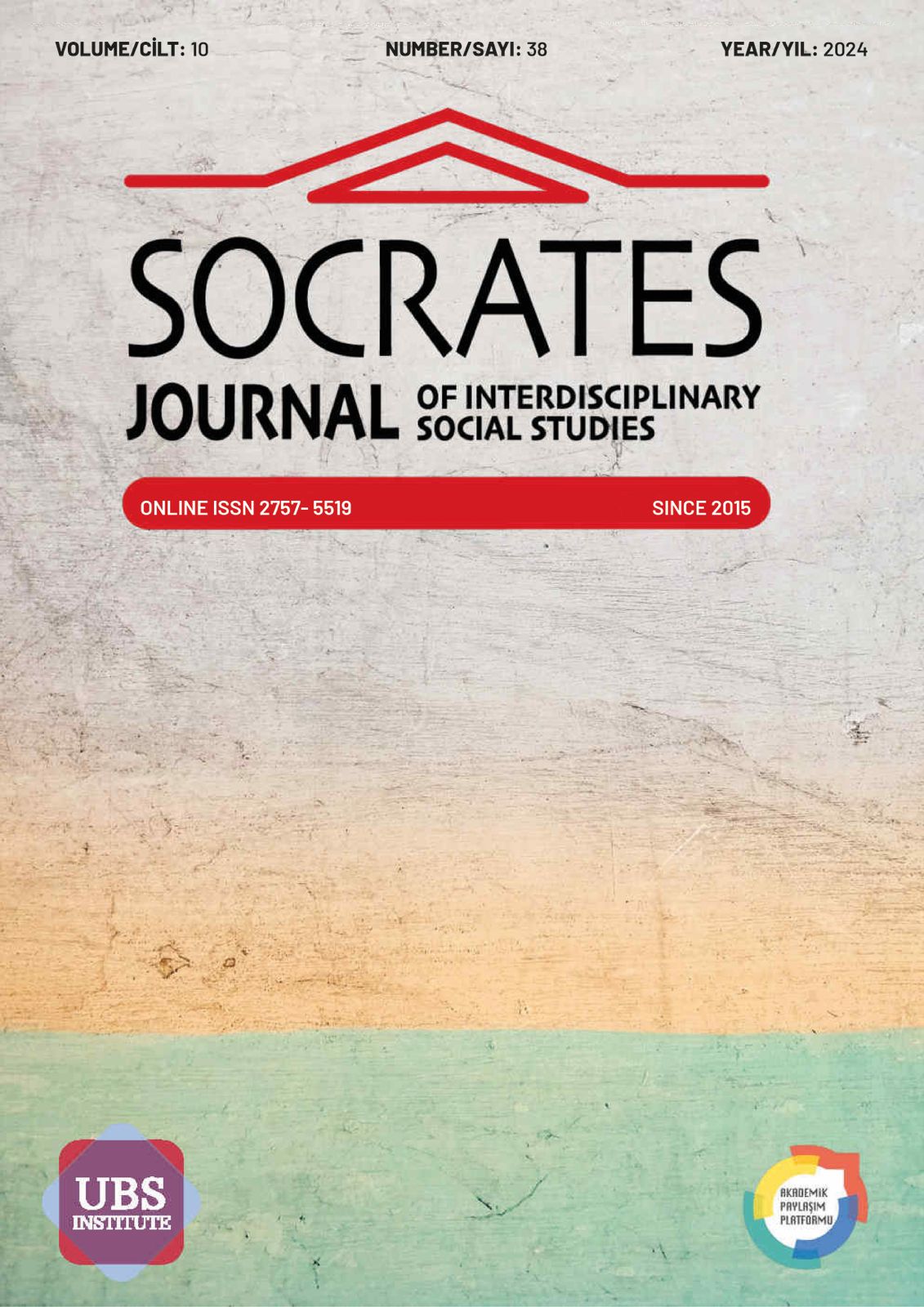MOBBING, A CURRENT PROBLEM IN ORGANIZATIONS PSYCHOLOGICAL HARASSMENT: MOBBING
DOI:
https://doi.org/10.5281/zenodo.10655417Keywords:
Mobbing, psychological harassment, job stress, mobbing in the workplace, psychological violence, emotional harassmentAbstract
In our changing and developing world, people and accordingly the structure and coordination of companies are changing. In this context, the human factor has gained great importance. Although digital platforms have come to the fore, the success and survival of companies depends on the efficiency that can be obtained from their employees and this development is directly proportional. In this context; unfair, visible or invisible sanctions of people within the company to each other may affect the working life negatively as well as the organizational structure of the company. In this study, while looking at the stance of the employee against mobbing, it has been studied how this situation affects the employee's view and commitment to the organization. Mobbing, which has increased remarkably in recent years and is a workplace problem, is one of the company's discomforts today and related units have started to be established. In our country, this situation is systematically taken into account by corporate companies, although not on the basis of company units.
References
Acar, A. (2008). İşyerinde psikolojik yıldırmaya (mobbing) maruz kalma sıklığı ile demografik özellikler arasındaki ilişkinin incelenmesi. Istanbul University Journal of the School of Business Administration Cilt/Vol:37, Sayı/No:2, 2008, 111-120 ISSN: 1303-1732
Chapel, D. ve Di Martino, V. (1998). “Violence at Work, ” ILO Report.
Davenport, N., Schwartz, R.D. ve Elliott, G.P. (2003). Mobbing: İşyerinde Duygusal Taciz. (Çev: O.C.Önersoy). İstanbul: Sistem.
Doğan, S. (2007). Duygusal Zeka: Tarihsel Gelişimi ve Örgütler İçin Önemine Kavramsal Bir Bakış. Ç.Ü. Sosyal Bilimler Enstitüsü Dergisi, Cilt 16, Sayı 1, 2007, s.231-252.
Eğer, K. (2017). İş Hayatında Uygulanan Mobbing’in Çalışanlar Üzerindeki Etkileri: Bir Uygulama Çalışması Türk Bilişim Sektörü. İletişim Çalışmaları Dergisi. Cilt 3, Sayı 2, 1 – 26.
Einarsen, S. (1999). “The Nature and Causes of Bullying at Work, ” International Journal of Manpower, 20 (1/2), 16-27.
Evli, M. (2018). Stresle Başetmede Geliştirilebilir Bir Boyut: Öğrenilmiş Güçlülük. Journal Of Contemporary Medicine. J Contemp Med 2018;8(4):377-380
Gökçe, A.T. (2009). Mobbing: İş yerinde yıldırma kavramsal çerçeve, Üniversite ve
Hilal et al., (2015). Mobbing (Psikolojik Yıldırma), Örgüt Üzerindeki Etkileri ve Çözüm Önerileri.
http://members.shaw.ca/mobbing/mobbingCA/mobsyndrome-1.htm, (17.02.2010)
http://www.globalblaw.com/post/deneme. “Mobbing Mağdurlarının Hukuki Hakları ” (Yazan: Baktaş, S.), Erişim Tarihi: 01.08.2022.
İlhan, Ü. (2010). İşyerinde Psikolojik Tacizin (Mobbing) Tarihsel Arka Planı ve Türk Hukuk Sisteminde Yeri. Ege Akademik Bakış. Cilt: 10 Sayı: 4. ss. 1175 – 1186
İşmen, E. (2001). Duygusal Zeka ve Problem Çözme. M.Ü. Atatürk Eğitim Fakültesi Eğitim Bilimleri Dergisi Yıl : 2001, Sayı 13, Sayfa : 111-124
Karaca, N. G. (2009). “Avrupa Birliği Ülkelerinde İşyerinde Psikolojik Tacizin Boyutları, Psikolojik Tacizle Mücadele ve Sendikaların Rolü”, Çimento İşveren Dergisi, 5 (23): 26-45.
Kök, M. (2019). Psikolojik Tacizin (Mobbing) Örgütsel Bağlılığa Etkisi: Banka Çalışanlarına Yönelik Bir Araştırma. İstanbul Gelişim Üniversitesi Sosyal Bilimler Enstitüsü. Yüksek Lisans Tezi.
Kök, S. B. (2006). “İş Yaşamında Psiko-Şiddet Sarmalı Olarak Yıldırma Olgusu ve Nedenleri, ” 14. Ulusal Yönetim ve Organizasyon Kongresi Bildiri Kitabı.
Leymann, H. (1990): “Mobbing and Psychological Terror at Workplaces”, Violence and Victims, 5 (2): 119-126.
Leymann, H. (1996). “The Content and Development of Mobbing at Work, ” European Journal of Work and Organizational Psychology, 5 (2), 165-184.
Okutan, E. (2015). Mobbing (Yıldırma) ve Kişilik İlişkisi: Hizmet Sektörü Çalışanları Üzerinde Bir Örnek Olay İncelemsi. Bilgi Ekonomisi ve Yönetimi Dergisi. Cilt: X Sayı:I
Özen, S.(2007). İşyerinde Psikolojik Şiddet ve Nedenleri
Özkan, M. (2015). Öğrenilmiş Güçlülük: Kavramsal Bir İnceleme. Kara Harp Okulu Bilim Dergisi. Haziran/June 2015, Cilt/Volume 25, Sayı/Issue 1, 25-40.
Shallcross, L. (2003): “The Workplace Mobbing Syndrome: Response and Prevention in the Public Sector”, A Community Response Conference, Brisbane Australia.
Süzek, S. (2008): İş Hukuku. İstanbul: Beta Basım Yayım
Şen, S. (2009). “Psikolojik Taciz ve İş Kanunu Boyutu”, Çimento İşveren Dergisi, 5 (23): 46-68.
Toplum Dergisi, 1-9.
Tüz, M. (2002). Kişisel Mükemmelliği Yakalamada Nöro Linguistik Programlama (NLP) Tekniği. U.Ü. Fen-Edebiyat Fakültesi Sosyal Bilimler Dergisi. Yıl: 3, Sayı: 3, 2002
Ünal, T. (2008). Halkla İlişkiler ve NLP İlintisinin İletişim Yönünden İncelenmesi. Marmara Üniversitesi Sosyal Bilimler Enstitüsü. Yüksek Lisans Tezi.
Yıldız, Ö. (2020). İş Yaşamında Bir Risk: Mobbing Üzeine Minör Bir İnceleme. Uluslararası AnadoluSosyal Bilimler Dergisi. Cilt: 4 Sayı: 3 Yıl: 2020
Yılmaz, A. (2008). Mobbing ve Örgüt İklimi İle İlişkisine Yönelik Ampirik Bir Araştırma. Elektronik Sosyal Bilimler Dergisi. Güz-2008 C.7 S.26 (334-357)
Downloads
Published
How to Cite
Issue
Section
License
Copyright (c) 2024 Socrates Journal of Interdisciplinary Social Studies

This work is licensed under a Creative Commons Attribution 4.0 International License.


